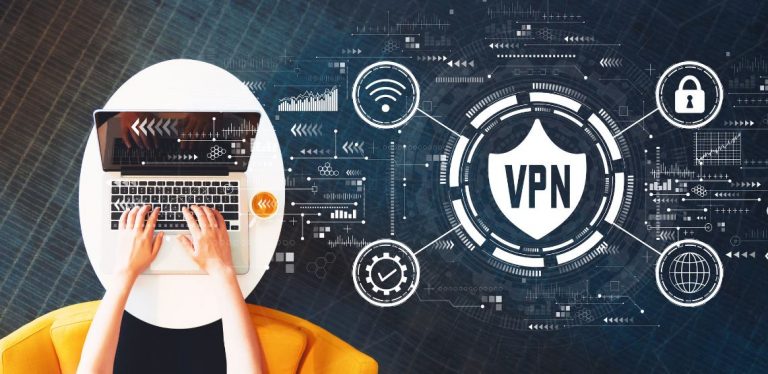Helping You Connect Anywhere
A hotspot gives users internet from a specific location or device and can be personal or public. Customers using public places such as coffee shops can often access a hotspot where they connect to the internet. A WiFi hotspot is also called a mobile hotspot, as users don’t need wires or cables. Using a public Wi-Fi hotspot puts users at risk, but they don’t have to worry about this when using a VPN.
What is a VPN?
A VPN, short for virtual private network, employs encryption to safeguard sensitive data. It safeguards the IP addresses and online activities of users. VPNs utilize different kinds of protocols to make sure connections are secure. These rules define the channeling of data between devices and servers.
How Does a VPN Help?
- A VPN offers security on public networks where the IP addresses and web traffic of users are easily accessible.
- Users who need to access private networks can benefit from split tunneling. VPNs with split tunneling allow users to access public and private networks at the same time.
- When buying products online, using a VPN protects financial information.
- Large tech companies may sell user data to third-party advertisers so they can target their ads. A VPN will prevent them from having access to user data.
- Using a VPN can offer access to content that is otherwise inaccessible. For example, users in a country that doesn’t allow Netflix could access it by using a VPN.
- Users can torrent files in countries that don’t allow torrenting or access social media at work by connecting to VPNs. They offer unlimited access to the internet without any restrictions.
Related Search Topics (Ads)
Why Use a VPN Hotspot?
Encryption: A VPN hotspot encrypts the internet traffic of any device that connects to the hotspot. All devices connected to it are protected by the security and privacy features of the VPN. Proxy will hide IP addresses but doesn’t use encryption, so it doesn’t conceal all online activities like a VPN.
A better user experience: VPN providers invest in high-quality servers and use various techniques to offer high connection speeds. A mobile hotspot can quickly exhaust cellular data and drain a phone’s battery. A VPN over wifi offers a better user experience.
Apps: Most VPN providers offer a VPN app that is easy to use for different devices. It makes it easy to install, launch and connect to a server. There are ways to configure mobile hotspots to make them more secure, but VPNs offer better privacy and security.
Secure multiple devices: A VPN hotspot helps to secure internet access for multiple devices in public places, while traveling, etc. It will hide all the IP addresses behind a VPN server and encrypt online traffic.
Some of the Best VPN Products for Hotspots
1. NordVPN
NordVPN uses 256-bit AES encryption and top VPN protocols like OpenVPN and Wireguard. It has a vast number of servers in countries all over the world. It allows for the connection of six devices simultaneously. Offering top-quality security and privacy doesn’t compromise the speed. It’s on the expensive side, but it offers top security, advanced features and customization options.
2. Surfshark
Surfshark provides excellent digital security and is rich in features. The security features include encryption, malware protection and data leak detection. One of the great features is that users can connect unlimited devices per subscription. Its camouflage mode makes VPN traffic look like normal traffic. This is useful in countries that restrict VPN use. The plans are affordable, and there’s a 30-day trial period.
3. UltraVPN
UltraVPN is one of the best VPNs for daily use with an app that’s easy to use. It may not have advanced features, but it provides a reliable security solution to prevent IP leakage. The Hydra Protocol affords users agile connections and high speed. It is quite flexible in terms of pricing, and signing up for two years makes it even more affordable. For users who want reliability rather than fancy features, UltraVPN is a good option.
4. Norton Secure VPN
Norton is famous for its anti-virus software, and this reputable company also offers a VPN. It uses 256-bit AES encryption and a different IP address every time a user connects. Changing IP addresses multiple times is a process called multi-hop or double-hop. Users can connect up to ten devices, and the price for ten devices for a year is really affordable. User-friendly mobile apps allow users to connect to nearby servers quickly and easily.
5. Hotspot Shield
Hotspot Shield brands itself as the fastest VPN. It masks IP addresses so users can browse anonymously and blocks malware-infected sites. Users can enjoy secure sessions while connected to public hotspots. It offers great streaming without lags on computers and when using the app on mobile phones. It’s an affordable option, and signing up for a year or two is cheaper than monthly plans.
Conclusion
It’s risky for users to use a Wi-Fi hotspot where hackers can steal their personal information, and third parties can eavesdrop on them. A solution is to use a VPN for encryption of devices connected to a hotspot. With this type of security, users don’t have to fear that hackers will steal their private information and know that no one can monitor their online activities, no matter where they use the internet.
